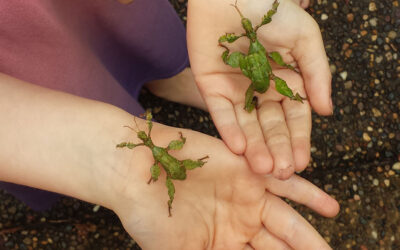It’s hard to put into words exactly how disruptive the last two years and the Covid-19 pandemic have been for our kids. The ongoing threat of sickness and uncertainty meaning a constant cloud of worry over their worlds.
And as we transition from ‘normal’ to ‘new normal’, and now to ‘new new normal’, each transition brings a fresh set of concerns and anxiety.
For many kids starting Kindy or Prep in 2022, living with covid is their normal. A pre-Covid world would be nothing more than a very distant memory – if at all. So how do we help our little ones back to the classroom and into this next phase of ‘normal’, when ‘normal’ is an unknown concept for them?
The experts at Parentline have these 6 simple tips for parents to help their child through this transition:
- Choose a time and place where you both feel calm and safe. Having a conversation during the day (anxiety is higher at night) and when you are next to your child (rather than opposite them) can help them open up.
- Be curious. Ask open questions and give your child time and space to answer. You might start by asking them what going back to ‘normal’ might look like for them. What are they excited about? What are they worried about?
- Validate their feelings, e.g. “It sounds like you are a bit worried about getting sick when you go back to school. It’s normal to worry about that. Worry can be a difficult feeling sometimes.”
- Give them an opportunity to ask questions. If they ask a question you can’t answer, be honest that you don’t know. This is an opportunity to find out more together!
- Create a plan together around returning to ‘normal’. This might mean talking about the routine for the first day back at school, or problem-solving fears like what your child might say or do if their best friend wants to hug them.
- Prepare your child that there might be setbacks and that this is a normal part of change. It can also be helpful to have some strategies that might help them stay calm and seek support if things go wrong or they feel stuck.
- Revisit social distancing practices and good hygiene. This can help your child feel empowered and focus on what they can control. Don’t forget to provide reassurance around measures and people who are helping us to stay safe.
- It’s important to keep the conversation open. Let them know you will check in with them again and that they can ask any questions or come to you for support at any time. Make sure to have follow up conversations with them.
It’s also important to check in on your own feelings, so take a moment to reflect on your thoughts and feelings, and how you feel about returning to normal.
- Reflect on your own words and behaviours around your child over the past few weeks. This isn’t to judge or blame, it is just a chance to be aware of any messages your child may have picked up from you, other family members or even the media.
- Focus on meeting your needs, so you can support your child from a place of calm. You might need to talk things through with someone, spend some time doing things that help you de-stress, or even engage in some self-care.
- Children can’t always verbalise their emotions or thoughts. Behaviour is a form of communication. Take some time to reflect on your child’s behaviours over the past few days. Have any of their behaviours been concerning?
Remember, if you are struggling with your own anxiety around Covid-19 or going back to ‘normal’, Parentline is here to support you.
It’s free AND non-judgmental counselling even if you just want to chat. You can call them on 1300 30 1300 (QLD & NT), start a WebChat or send them an ">email seven days a week between 8am and 10pm.


